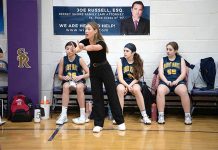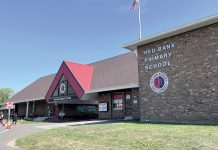
By Lawrence Sykoff, Ed.D.
The global pandemic has undoubtedly impacted children in countless ways, some more observable than others. Although there is ongoing review and analysis of how much academic learning has been lost over the past year, it is immediately clear that significant gaps in child and adolescent development will be seen in social and emotional learning. This potential deficit has many sources: extended lockdowns have dismantled routines; students have been isolated for long periods of time from friends; children and teenagers have been disengaged from formal and informal social activities, group learning events and reliable guidance from teachers, coaches and advisors.
As an educator, for example, I often observed that children become more prone to academic disconnection, as well as and social and emotional distress, when consistent school attendance was habitually interrupted. Indeed, the research associated with chronic absenteeism and overall learning is compelling. To that end, supporting students’ well-being will be as important as narrowing traditional academic gaps in the core curriculum over the next several years. In fact, harnessing a student’s true academic potential is achieved by first developing his or her social and emotional capacity.
Social emotional learning (SEL) is defined as children’s patterns of thoughts, feelings and behaviors. These tenets are as essential to whole-child education as the acquisition of scholastic competencies. Fortunately, most educators understand the inherent value of empathy, resilience and the ability to cope with stress and anxiety, all of which are central to a holistic and effective school curriculum.
Through in-person learning with rich interactive experiences, children develop meaningful relationships, shape an optimistic mindset, and discover the value of self-efficacy. These noncognitive skills are strongly linked to creativity, tolerance and self-control; unsurprisingly, they are acquired through consistent peer interactions, participation in sports, school-sponsored social events, fine and performing arts programs and, of course, regular in-person conversations with important adults. Although teachers have adjusted admirably to myriad complications imposed by remote learning, nothing can ever replace the real-world impact teachers have in the classroom, on the field, on the stage or in the studio or lab. This is where authentic connections are made and this is how finding the heart of a child becomes a reality. The relational trust that social and emotional learning requires between and among students, teachers and parents remains central to such positive outcomes.
According to the Economic Policy Institute (“COVID-19 and Student Performance, Equity and U.S. Policy, Lessons from Pre-Pandemic Research to Inform Relief, Recovery and Rebuilding,” Sept. 10, 2020), the cessation of these interactive in-person experiences can place some stu- dents at risk for reaching greater intellectual competence. This is especially the case when children are absorbing upsetting and recurring issues in the news and the world around them. However, children who can adjust to the inevitable day-to-day inconveniences and disruptions to routines and thrive in challenging situations have been able to acquire a reservoir of perseverance, perspective, judgment and self-awareness. From my conversations with colleagues, the ability to access such qualities – the cornerstones of social and emotional learning – modifies learning deficits, resulting in a more spirited interest in learning. Moreover, the traits help children become more thoughtful, appreciative and empathetic in a world that increasingly demands their leadership and character.
As we return to a more familiar way of life, one benefit of the past year may be the heightened recognition of social emotional learning as an integral part of an inclusive and culturally responsive learning community. Well-adjusted, self-assured children are better set up to become enthusiastic agents of their own learning. Indeed, self-confidence is a powerful motivator when examining the antecedents of academic success, not to mention life outside of (and beyond) school.
It is also essential to acknowledge that families and educators have done what was possible and feasible to support educational goals during this formidable health crisis. Perhaps another unanticipated, yet valuable, outcome of the pandemic is that both teachers and parents have cultivated a newfound appreciation for each other – and the centrality of consistent and effective school-home partnerships.
Now is a perfect opportunity to look ahead and formulate fresh, differentiated educational experiences. As always, calculating what has been lost this past year is better done in its proper context, extracting the growth points that can facilitate the development of innovative ways of learning. As the nation begins to regroup, and fervently rebuilds and reimagines educational systems and structures, our collective situation provides the space to examine, perhaps for the first time, the exacerbation of the vulnerabilities and blind spots that challenged all of us for over a year. Indeed, this represents the first step on the journey toward the creation of a new set of educational experiences and, in many senses, a paradigm shift. Integrating cutting-edge research into school programs will serve as a needed reminder that we are never prisoners of the past, but pioneers of the future. Our children will be watching and deserve no less from us.
School leaders, teachers, parents and community organizations have an unprecedented opportunity to accelerate and collaborate on all educational fronts. In the months and years ahead, from in-school, after-school, specialized summer school, summer camps, weekend programs and customized tutorial programs, the more exposure children have to experience positive social and emotional learning experiences, the more likely they will begin to make up lost time.
We can’t move too quickly.
Lawrence Sykoff, Ed.D., is the president of LSS Consulting Group and Headmaster Emeritus of Ranney School in Tinton Falls.
This article originally appeared in the April 22 – 28, 2021, print edition of The Two River Times.














